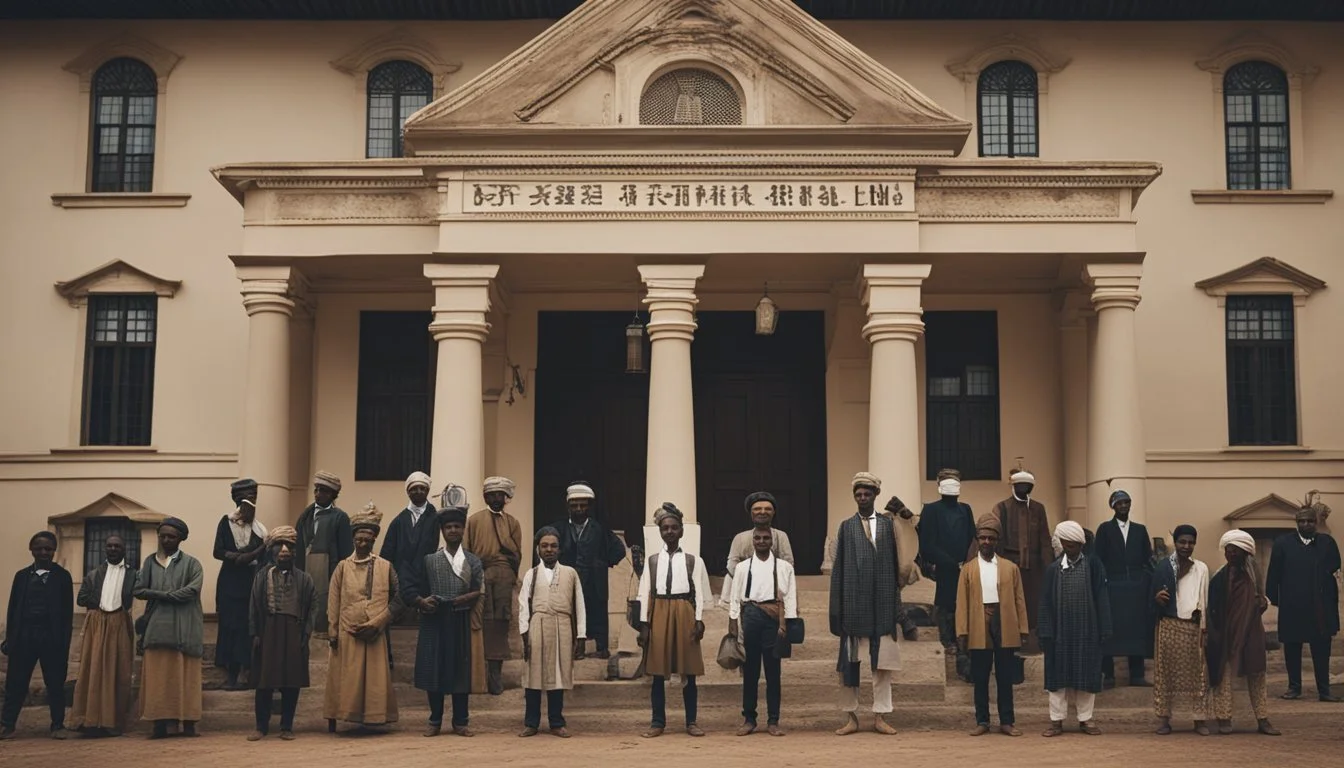Raoul Peck: Confronting Colonialism and Racism Through Film
Raoul Peck's documentary "Exterminate All the Brutes" takes a hard look at the dark history of colonialism and racism that has shaped modern society. This four-hour series on HBO Max dissects the brutal legacies of European imperialism and American national mythology, unveiling the racist ideologies underpinning these historical narratives. By grounding his thesis in rigorous academic research and bringing an emotional urgency to his storytelling, Peck challenges viewers to confront uncomfortable truths.
Initially inspired by Sven Lindqvist's 1992 book of the same name, Peck's documentary goes beyond a simple historical recount. It traces the origins of contemporary forms of biological racism back to pivotal moments like the Spanish Inquisition. The series combines historical analysis with personal narrative, making a compelling case for re-examining how history is told.
Raoul Peck employs a polemical tone to ensure that the emotional weight of these injustices is felt deeply by the audience. His aim is not just to educate but to provoke a deeper understanding of the ongoing impacts of colonialism and racism. This approach ensures that "Exterminate All the Brutes" is both an informative and deeply moving exploration that demands attention.
The Life of Raoul Peck
Raoul Peck's early life and education provided him with a diverse cultural background, while his filmmaking career has been marked by bold works that tackle complex themes of colonialism and racism.
Early Years and Education
Raoul Peck was born in Haiti in 1953. Due to political unrest, his family moved to the Democratic Republic of Congo, where he spent his formative years. This early exposure to diverse cultures and political climates influenced his worldview.
Peck later moved to the United States, where he studied industrial engineering at Brooklyn College. He continued his education in France at the prestigious Louis Lumière National Cinema School in Paris, solidifying his foundation in filmmaking.
Filmmaking Career and Major Works
Raoul Peck's filmmaking career began with documentaries and short films that reflected his keen interest in social issues. One of his breakthrough works was the documentary "Lumumba: Death of a Prophet" (1992), which explored the life of Congolese leader Patrice Lumumba.
His 2016 film, "I Am Not Your Negro," based on James Baldwin's unfinished manuscript, garnered critical acclaim and an Academy Award nomination. Peck's recent project, "Exterminate All the Brutes," is an HBO documentary series that examines European colonialism and genocide.
Peck's works are known for their emotional depth and historical insight, making him a prominent voice in contemporary cinema.
Confronting Colonialism in Cinema
Raoul Peck has continually pushed the boundaries of cinema to expose and critique the brutal legacy of colonialism. His works effectively utilize narrative and documentary forms to deliver powerful messages.
Narratives of Oppression and Liberation
Peck's films often center on themes of oppression and liberation. In Exterminate All the Brutes, he explores the devastating impacts of European colonialism, blending narrative storytelling with historical analysis. By employing visually striking imagery and poignant character arcs, Peck challenges audiences to reflect on the long-standing effects of colonial actions.
In I Am Not Your Negro, he uses the words of James Baldwin to depict the enduring struggle for civil rights. This film not only highlights the personal stories of significant figures but also interweaves their experiences with broader historical contexts.
Documentaries and Historical Contextualization
Peck's documentaries serve as powerful tools for historical education. Exterminate All the Brutes is notable for its in-depth examination of the roots of modern racism, linking it to events such as the Spanish Inquisition. Peck's approach is both educational and emotionally compelling, utilizing a mix of archival footage, interviews, and reenactments.
His work in The Young Karl Marx also illustrates his capacity to contextualize historical ideologies. Here, Peck delves into the socio-political conditions that shaped Marx’s theories, presenting a nuanced understanding of historical figures and their legacies.
Peck’s documentaries not only present facts but also encourage viewers to critically engage with historical narratives, fostering a deeper awareness of the past’s implications for the present.
Exploring Racism Through Film
Filmmaker Raoul Peck uses his documentaries to vividly illustrate the deep-seated issues of racism and colonialism. His works provide both personal insights and highlight the global implications of these pervasive issues.
Personal Identity and Societal Reflections
Raoul Peck delves into personal and collective identities in his films. "I Am Not Your Negro" examines the life and legacy of James Baldwin, shedding light on the personal impact of systemic racism. The documentary's narrative style and use of Baldwin's own writings make it a powerful reflection on identity and race.
Peck's films often merge personal stories with broader historical contexts. This approach ensures that viewers understand not just the facts but the lived experiences behind them. His work invites audiences to reflect on how societal constructs shape individual lives.
Global Impact of Racism and Recognition
"Exterminate All the Brutes" examines the historical roots and consequences of racism across the globe. Using a mix of visual storytelling and historical documentation, Peck traces how colonialism and racism have shaped societies.
The film investigates the brutal impacts of European colonialism and its lasting effects on modern-day racism. Peck's documentaries bring to light histories that are often overlooked, providing a comprehensive view of global racial dynamics.
By addressing these topics head-on, Peck’s work fosters greater recognition and understanding of the global impact of racism. His films push for a more informed and empathetic worldview.
Educational Initiatives and Advocacy
Raoul Peck plays a pivotal role in educational initiatives and advocacy, engaging in diverse activities such as workshops, public speaking, collaborations, and mentorship programs to promote awareness about colonialism and racism. He combines academic rigor and emotional engagement to inspire change and understanding.
Workshops and Public Speaking
Raoul Peck frequently conducts workshops that dive deep into the historical and social contexts of colonialism and racism. These sessions are often interactive, allowing participants to engage actively and critically.
In his public speaking engagements, Peck emphasizes the emotional and human aspects of these issues. He uses his background in filmmaking to create compelling narratives that resonate with audiences. This dual approach helps to not only educate but also motivate attendees to take action.
Peck’s workshops and talks are highly regarded in academic circles for their thorough examination of history. They are also accessible to the general public, making complex topics understandable and relevant.
Collaborations and Mentorship Programs
Collaboration is a cornerstone of Peck’s advocacy work. He partners with various educational institutions and cultural organizations to broaden the reach of his message. His partnerships often result in co-created content, such as films and educational resources, that highlight themes of colonialism and racism.
Mentorship is another key aspect of Peck’s work. He mentors young filmmakers and activists, providing guidance and opportunities to amplify their voices. Peck's mentorship programs are designed to nurture the next generation of leaders in the fight against racial injustice.
Through these initiatives, he fosters a community of informed and passionate individuals who are equipped to drive change. This collaborative and supportive approach ensures that the impact of his work extends far beyond his own projects.
Reception and Critical Analysis
Raoul Peck's work has sparked significant discussion in both academic circles and among general audiences. Each perspective offers unique insights into the impact and significance of his films.
Academic Perspectives
Raoul Peck's documentaries, including Exterminate All the Brutes, are noted for their rigorous academic research and pointed commentary on colonialism and racism. Scholars often highlight the way he intertwines historical analysis with contemporary socio-political issues.
His approach has been described as both polemical and emotionally charged, effectively bridging the gap between scholarly critique and accessible storytelling. The fusion of Baldwin's writings with modern footage in I Am Not Your Negro is a notable example, allowing for a deeper exploration of ongoing racial injustices.
Public and Audience Responses
General audiences have also responded passionately to Peck's work. Viewers appreciate the vivid and personal narrative style, which brings historical events and issues of racism to a broader audience.
Exterminate All the Brutes has been particularly impactful, with its blend of historical narrative and personal essay resonating strongly in the context of current social movements. Some have found Peck's work challenging due to its unflinching portrayal of uncomfortable truths, yet this directness is also what many find compelling and necessary.
By combining visual storytelling with deep historical insight, Peck manages to engage a wide audience, fostering important conversations about history and its lasting legacies.
Influence and Legacy
Raoul Peck's work has significantly impacted filmmakers and historians. His innovative storytelling methods and commitment to uncovering historical truths have provided a template for educational and artistic endeavors.
Inspirations to Filmmakers and Artists
Raoul Peck's distinct narrative style and use of visual effects have inspired numerous filmmakers and artists. Exterminate All the Brutes employs a blend of historical footage, animation, and dramatizations, pushing the boundaries of traditional documentary filmmaking.
Innovative techniques from this series have been emulated by contemporary directors seeking to depict complex historical subjects. Peck's commitment to presenting raw and unfiltered truths has set a benchmark for authenticity in storytelling.
Contribution to Historical Discourse
Peck's work has brought attention to neglected aspects of history, such as the Spanish Inquisition's role in shaping modern forms of racism. His films serve as accessible educational tools, making complex historical narratives comprehensible to a broad audience.
The in-depth research and personal reflections included in his documentaries encourage viewers to rethink accepted historical narratives. Peck's contributions have bolstered historical discourse by integrating personal stories with global historical events.



